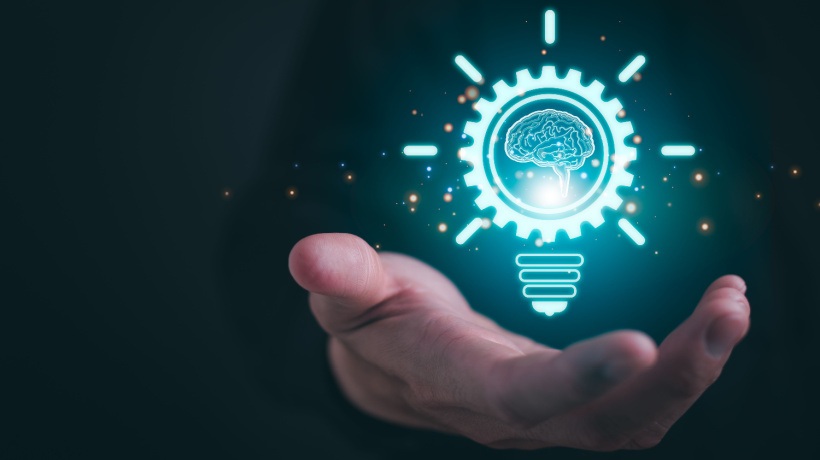
Education And AI: A Collaborative Approach
- by admin
- Posted on May 16, 2024
The Future Of Learning: AI’s Influence On Education
As we continue to advance into the digital age, it’s hard to ignore the increasing presence of Artificial Intelligence (AI) in our daily lives. From virtual assistants like Siri and Alexa to self-driving cars, AI has become an integral part of our society. However, its potential impact on education is often overlooked. Traditional education systems, with their one-size-fits-all approach and limited access, have long been criticized for not catering to individual learning styles and needs. This is where AI in education comes in, offering a transformative opportunity to revolutionize the way we learn.
With the ability to process vast amounts of data and personalize learning experiences, AI has the power to enhance the quality and accessibility of education for all. In this article, we will explore the potential of AI in education and how it can shape the future of learning. So, let’s dive into this exciting and rapidly evolving field and discover the possibilities that await us.
AI’s Positive Impact On Education
Let’s explore how AI is impacting learning positively:
1. Personalized Learning
Traditionally, teaching caters to a general audience, but AI can tailor the experience to individual needs and preferences. This is achieved through powerful algorithms that adjust to a student’s performance, learning pace, and interests in real time. For example, adaptive learning platforms can increase difficulty, suggest relevant resources, and provide targeted feedback based on a student’s progress. These platforms identify areas where students struggle and create a personalized curriculum that evolves with the student.
AI-powered virtual tutors offer similar benefits, providing one-on-one help. They can answer questions and explain concepts in different ways until a student understands. These virtual tutors are available anytime, anywhere, removing the limitations of traditional classrooms.
By personalizing learning, generative AI can make education more engaging and effective. Students take control of their learning journey, fostering a deeper connection with the material. As AI continues to develop, the future of education promises a world where learning is not only accessible to all but uniquely tailored to each student’s needs.
2. Enhanced Engagement And Accessibility
AI is transforming education into a more engaging and accessible experience for all students. Imagine history lessons becoming Virtual Reality adventures or math problems turning into fun puzzles! Interactive and gamified learning, powered by AI, can significantly boost student motivation and make learning more enjoyable. This not only improves how students feel about learning but also helps them retain knowledge better through active participation.
Artificial Intelligence has the potential to bridge educational gaps in remote areas and for students with disabilities. AI-powered programs can deliver personalized education anywhere in the world, overcoming geographical barriers. Additionally, AI tools can be designed to support students with disabilities by offering features like voice-to-text conversion, personalized learning aids, and interfaces that adapt to individual needs. This paves the way for a more inclusive and equitable education system where every student has the opportunity to excel.
3. Data-Driven Instruction And Support
AI can analyze vast amounts of student data to understand how each student learns. This goes beyond just grades; it identifies patterns in a student’s performance that show where they might be struggling. With this knowledge, teachers can provide targeted help exactly where it’s needed.
AI is also transforming grading and feedback. New AI-powered tools can automatically grade a wide range of assignments, from quizzes to essays, and provide detailed feedback instantly. This frees up teachers’ time from tedious tasks, allowing them to focus on what they do best: guiding and supporting students. Timely, personalized feedback helps students learn more effectively.
Overall, AI in education creates a more supportive, efficient, and personalized learning environment. With AI’s help, every student has a better chance of success.
4. Career Preparation
AI is becoming a powerful tool for helping students prepare for the ever-changing job market. It is a kind of system that can analyze job trends and match a student’s skills and interests to the perfect career path! AI-powered tools can search through massive amounts of data to find new job opportunities, predict what skills will be in demand in the future, and suggest the education needed to get those jobs.
But AI doesn’t stop there. Students can also use AI platforms to participate in virtual internships and simulations. This “hands-on” experience in different fields allows them to test the waters before committing to a career path. By trying out different job simulations, students can develop relevant skills and gain valuable insights into different professions. This makes it easier for them to make informed decisions about their future.
Overall, AI is transforming career preparation from a one-size-fits-all approach to a personalized journey. With AI’s help, students can graduate with the skills and confidence they need to thrive in the job market of tomorrow.
Challenges And Considerations With AI In Education
Like everything else, Artificial Intelligence has some challenges and limitations. Elon Musk has warned that Artificial Intelligence is “one of the biggest threats” to humanity. This is because humans face the threat of being outsmarted by machines for the first time. And, there are many more statements on similar topics. So, let’s find out some potential challenges and considerations with AI in education. Take a look at this:
1. Equity And Access
AI has the potential to revolutionize education, but only if everyone has access to this technology. The gap between students from different economic backgrounds could widen if some schools can’t afford AI tools.
To ensure a truly equitable education system, we need to make sure all students have access to AI-powered resources. This means providing the necessary computers and software, but also training teachers and students on how to use them effectively. And, to make this happen, governments will have to put in efforts to make it equally available for all.
By closing the digital divide, we can ensure that everyone benefits from the power of AI in education. This will create a more personalized and efficient learning experience for all students, not just a privileged few. As we develop new AI technologies, we also need to focus on making sure everyone has the chance to use them. This will create a truly fair and inclusive education system.
2. Teacher Role Redefined
Amidst the transformative impact of AI in education, concerns about technology replacing teachers have emerged. However, it’s essential to recognize AI as a powerful tool designed to augment, not supplant, the invaluable role of educators. Far from making teachers obsolete, AI empowers educators by streamlining administrative tasks, providing data-driven insights into student performance, and facilitating a more personalized approach to instruction. This allows teachers to focus on what they do best—inspiring, guiding, and engaging students on a personal level.
Educators can leverage AI tools to identify individual student needs, craft tailored learning experiences, and allocate more time to one-on-one interactions, thereby enriching the educational journey for every learner. In this redefined role, teachers emerge as irreplaceable mentors and facilitators of learning, harnessing the power of AI to cultivate a classroom environment that is more inclusive, adaptive, and inspiring.
Thus, rather than diminishing the role of educators, AI in education celebrates and amplifies their significance, empowering them to make an even greater impact on their students’ lives.
The Future Of Learning With AI
AI can be a powerful tool to improve education, but it can’t replace teachers. Teachers bring creativity, critical thinking, and the ability to help students develop social and emotional skills—all irreplaceable qualities in education. AI should be used to support teachers, not take their place. It can handle routine tasks, like grading, and personalize learning for each student. This frees up teachers’ time to focus on what they do best: connecting with students and making learning engaging.
Imagine classrooms where Virtual Reality brings history and science to life! AI can help create these immersive experiences, but it’s important to remember that technology shouldn’t replace human connection. The future of education is all about using AI to make learning more engaging and accessible, while still keeping the important role of teachers at the center. This will create a richer learning experience for all students.
Conclusion
We’ve explored how AI can revolutionize education. AI personalizes learning for each student, making education more adaptable and effective. It isn’t just about technology—it’s about creating a more dynamic and inclusive education system.
The future of education is a partnership between AI and teachers. This powerful duo will make learning more engaging and accessible, while still preserving the important role of teachers. With AI as a helpful partner, teachers can focus on inspiring and guiding students. AI in education is an exciting prospect. It has the potential to turn learning from a chore into a personalized journey that ignites curiosity, fosters growth, and empowers students everywhere.
The Future Of Learning: AI’s Influence On Education As we continue to advance into the digital age, it’s hard to ignore the increasing presence of Artificial Intelligence (AI) in our daily lives. From virtual assistants like Siri and Alexa to self-driving cars, AI has become an integral part of our society. However, its potential impact…
